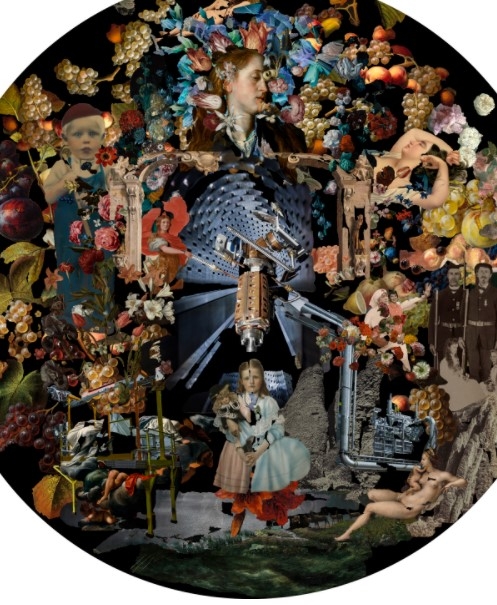We live in an ocular culture, where constellations of historic and contemporary images are often more significant than reality. Images are the grounds for knowledge transfer, for collective memory, entertainment and cultural enquiry, and, after all, they provide endless opportunities for returning to the same events, persons and objects in order to uncover ever new interpretations of the past. A regular investigation into the legacy of the visual culture countless times has resulted in the rewriting of history, a different interpretation of the ambiguities of past events, as well as has shed light on the relationship between media power and propaganda. Images are a major source of investment and revenue in the art world, where the images’ symbolic value is converted into material worth.
The world of images becomes ever more saturated, and our capacity to grasp and comprehend it is becoming more and more limited. Poetically speaking, the map has grown larger than the territory. Nowadays we can access almost the entire visual culture that humanity has amassed, and not just access, but also obtain canonized images for our personal digital archive. In this day and age, when each and every one of us has become a producer and storyteller who strives to express and draw attention to oneself, publicly wallow in melancholy in the social media, to earn money, practise civil journalism etc., the accessibility of the world of images is no longer a privilege, but a self-evident tradition.
“I am interested in the fate of the canonized artistic, scientific and journalistic images and their potential to embody contemporary meanings. The institutions that select, store and deliberately make collections of images in art, science and journalism have acquired the status of authority in culture. The collections of these institutions are a priori considered the “golden legacy” of visual culture that ought to be preserved for the future. In my collages, I have used images from open source collections of art museums, scientific institutions and various image banks whose archives may be considered iconic testimonies of the present and the past.
The technical execution of the collages is based in the image post-processing software algorithms, letting them overtake the accuracy and precision of image depiction. Thus, the digital post-processing technological features become a part of the collages’ notional and technical code,” says artist.
Latvian spectators can view the series “Mellow Apocalypse” for the first time. Alnis Stakle has created a new piece of work for this exhibition – a digital collage, using the value of the collection of the Latvian Museum of Photography – the collection of the Strenči Photo Studio. Photographers of the photo studio – Dāvis Spunde, Jānis Ziemeļnieks, Paulīne Kraukle and Konrads Krauklis – have documented cultural and historical changes in Strenči, a town in northern part of Latvia, and its surroundings from 1909 to 1950. In 2004, with the support of LATIO, 13,000 glass negatives were included in the collection of the Latvian Museum of Photography. The Latvian Museum of Photography continues to digitize the collection, which significantly promotes the research and accessibility of the Strenči Photo Studio.
Within the framework of the public program accompanying the exhibition, thematic events on the development of digitization of the collections of memory institutions takes place, leading to a discussion on the transfer of visual culture from analogue to digital.
Alnis Stakle (1975) is Latvian photographer and the Assistant Professor of photography at the Rīga Stradiņš University (LV) department of Communication studies, head of the study programs “Photography” and “Multimedia Communication”. He holds PhD in art education from Daugavpils University (LV). In his creative work for more than twenty years, Alnis Stakle mainly works in the genre of landscape and still life, but has also focused on self-portrait and archival interpretation. Since 1998, his works has been exhibited widely, including solo & group exhibitions at the Latvian Museum of Photography, Latvian National Museum of Art, Modern Art Oxford (GB), Art Center ‘Winzavod’ in Moscow (RU), Museo Nacional de Bellas Artes in Buenos Aires (AR), Centre for Fine Arts BOZAR in Brussells (BE), in addition to being held in private and public collections. His works has been published in GUP, British Journal of Photography, Wired, Camera Austria, EYEMAZING, IMAGO, OjodePez, Archivo, Leica Fotografie International, ect. For more information about the photographer, please visit: https://alnisstakle.com/




